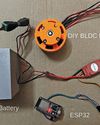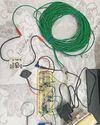
Today, manufacturing is the first thought that comes to our minds when we look at an industrial setup that predominantly consists of mining and power grid. In order to digitise the industry entirely you need to ensure that all the Internet of Things (IoT) devices, robots, and drones across the entire country are connected. You need to run real-time applications to enable the strict need for industrial applications, hence, creating a need for reliable connectivity that supports high bandwidth and low latency at the same time.
Let us look at a few reasons for requiring these applications:
Enhanced mobile broadband:
• 20/10 Gbps DL/UL
• 4ms user plane latency
• Mobility up to 500km/hr
Ultra-reliable low latency communication:
• 1ms user plane latency
• Highly secure/resilient
• 0ms mobile interruption time/always available
Massive machine-type communication:
• 1 million devices per km square
• 10+ years battery life
• 20dB coverage enhancement
Private 5G and edge cloud may disrupt emerging technologies
A Wi-Fi network is most suitable for the indoors, but it is not scalable when you have to cover it on a 10 square kilometre area. To do that you will have to put a Wi-Fi modem at every 10 to 20 metres, which is impractical and costly at the same time. In this case, a cellular network is the most appropriate option.
We already have working 4G networks. These networks are predominantly public networks and not private networks with an enterprise. Similarly, cloud is also not physically present within an enterprise.
This story is from the December 2022 edition of Electronics For You.
Start your 7-day Magzter GOLD free trial to access thousands of curated premium stories, and 9,000+ magazines and newspapers.
Already a subscriber ? Sign In
This story is from the December 2022 edition of Electronics For You.
Start your 7-day Magzter GOLD free trial to access thousands of curated premium stories, and 9,000+ magazines and newspapers.
Already a subscriber? Sign In

ESP32-Powered AUDIO-VISUAL SIREN
This sound alternator is designed to simulate the effects of a police siren, combining sound and light to create a dynamic audio-visual experience.

BLDC MOTOR With Web-Based Speed Control Using ESP32
Integrating wireless control into brushless direct current (BLDC) motor systems opens up exciting possibilities for applications such as remote-controlled cars, robots, and other innovative systems.

Pi Zero Portable BILINGUAL TRANSLATOR
This system is designed as a bilingual translator, leveraging the gTTS library to support multiple Indian languages, including English (en), Bengali (bn), Gujarati (gu), Hindi (hi), Kannada (kn), Malayalam (ml), Marathi (mr), Tamil (ta), Telugu (te), and Urdu (ur).

Op-Amp-Based VEHICLE THEFT DETECTOR
A simple, low-cost device can effectively alert homeowners or occupants if a parked vehicle is moved or tampered with.

loT SMART METER With Dashboard
Energy meters in homes track electricity usage, enabling accurate billing by governments and providers.

Choose The Right Cloud Platform For Implementing loT PROTOCOLS
Working with loT protocols like MQTT, AMQP, and CoAP on cloud platforms is essential for developing scalable and efficient lol applications. The choice of the programming platform will depend on factors like project requirements, existing skills, and target devices. Leveraging the appropriate libraries and cloud services can enable seamless integration of lol devices with cloud-based applications.

Why TMR SENSORS Lead Next-Generation Design
TMR sensors are gaining traction in industries needing precision and power efficiency. What makes them the go-to choice for modern designs?

DESIGNING PCBs For EMI Management
Electromagnetic interference can derail your PCB’s performance. EMI management is not just a technical necessity but a hallmark of exceptional PCB design.

CUTTING COSTS, NOT CORNERS: Building Large Scale Applications With Open Source Software
Here are some strategies and best practices for leveraging open source to create enterprise-grade web and mobile applications without sacrificing quality or functionality.

"We Are One Of India's Very Few State Bodies To Manage The Entire Lifecycle Of The Electronics EcosystemFrom Approvals To Subsidies."
What is Gujarat State Electronics Mission GSEM), and how is it attracting major investments in electronics manufacturing, particularly semiconductor manufacturing, to Gujarat? To delve deeper, Electronics For You’s Nijhum Rudra spoke with Manish Gurwani, the head of GSEM. Here is what he revealed...